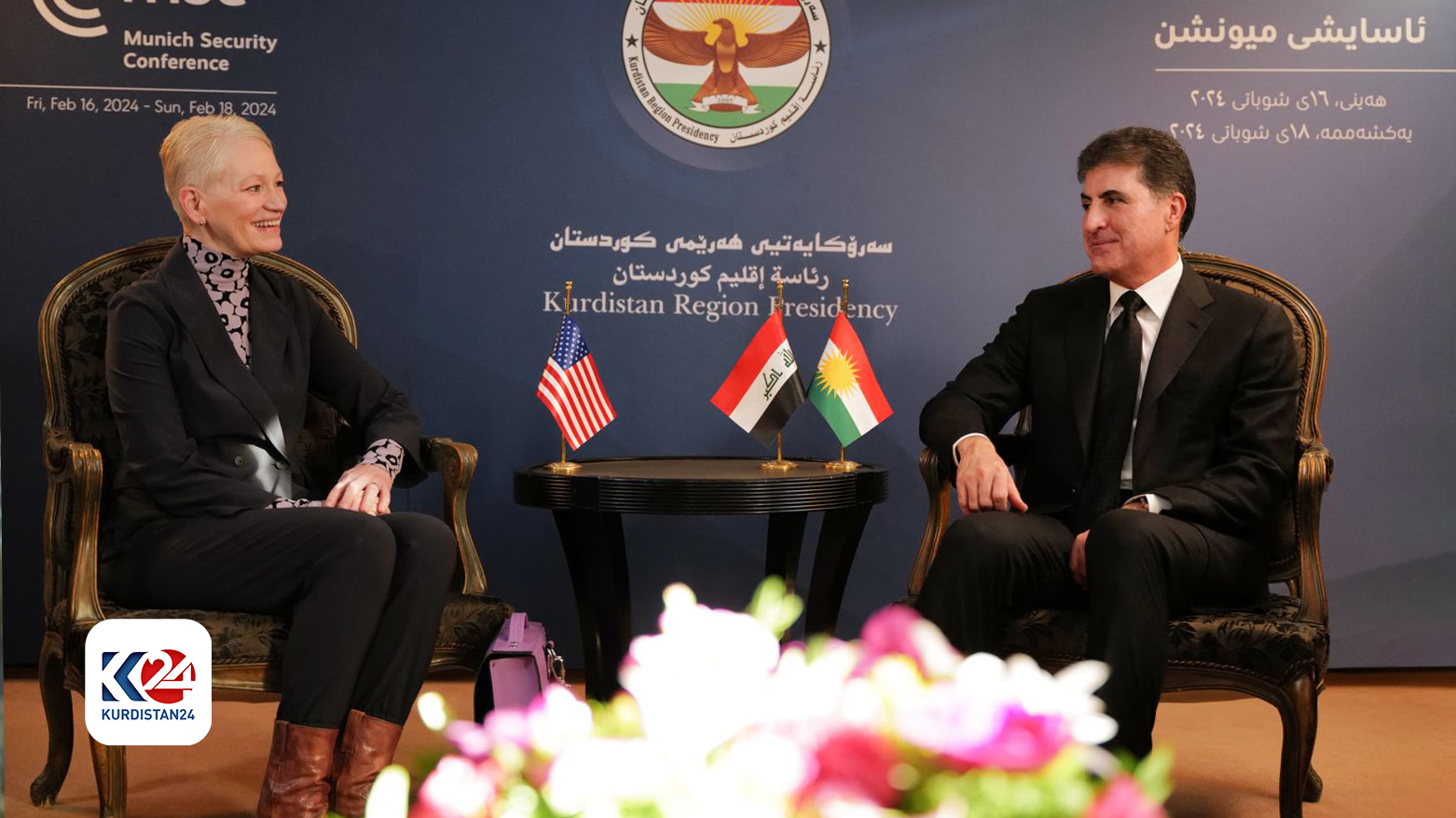Senior Pentagon Official Meets Kurdish President at Munich Security Conference

WASHINGTON DC, United States (Kurdistan 24) –The President of the Kurdistan Region, Nechirvan Barzani, met with the U.S. Assistant Secretary of Defense for International Security Affairs, Celeste Wallander, on the sidelines of the Munich Security Conference on Sunday, the last day of the prestigious meeting of world leaders.
They “agreed on the significance for the wider region of peace, security, and political stability in Iraq and the Kurdistan Region,” according to a read-out of the meeting from the office of the Kurdish President.
“They also highlighted the potential risk of the escalation of the Gaza war engulfing the region,” the read-out continued, “underscoring the importance” of Iraq not becoming entangled “in external issues and prioritizing the fight against terrorism and the ISIS threat.”
Barzani has represented the Kurdistan Region at the annual Munich Conference for many years, and he also met with Wallander last year.
Wallander, for her part, visited Erbil in Sept. 2022, when she renewed a Memorandum of Understanding between the U.S. and the Kurdistan Region, pledging continued U.S. support for the Peshmerga.
Read More: KRG, US sign renewed MoU to continue to support Peshmerga against ISIS
Earlier this month, Fawzi Hariri, Chief of Staff of the presidency’s office, led a delegation to Washington. Among the U.S. officials they met were Wallander, as well as Amos Hochstein, Senior Advisor to President Joe Biden for Energy and Investment.
Barzani met with Hochstein on Saturday, and it is now apparent that one purpose of the meetings in Washington was to prepare for the subsequent meetings in Munich, including Barzani’s meeting with Wallander, as well as Hochstein.
Read More: U..S. Presidential Envoy on Energy Meets Kurdish President at Munich Conference
In Sunday’s meeting between Wallander and Barzani, “the discussion touched upon the negative repercussions of targeting and attacking Coalition forces in Iraq and the Kurdistan Region,” the read-out from the presidency’s office explained. “It was mutually agreed upon that actions jeopardizing the security, stability and sovereignty of the country must be prevented.”
Since Feb. 4, following two significant U.S. retaliatory strikes, there have been no further attacks by Iranian-backed militias on U.S. forces in Iraq or Syria, as Pentagon Press Secretary Maj. Gen. Pat Ryder told journalists on Thursday (although attacks by the Iranian-backed Houthis on shipping in the Red Sea continue.)
But as the discussion between Wallander and Barzani suggested, both the U.S. and Kurdish government remain concerned that such attacks could resume.
“The President and the Assistant Secretary of Defense also deliberated on the security cooperation between the U.S. and Iraq within the framework of the Strategic Agreement between their nations,” the read-out from Barzani’s office concluded.
As the most senior U.S. officials, starting with President Biden, himself, have repeatedly stated, U.S. forces are not leaving Iraq. Rather, Washington has begun discussions with Baghdad in the context of the U.S.-Iraq Higher Military Commission to transition from a military presence, based on fighting ISIS within an international coalition, to a military presence based on a bilateral accord with the Iraqi government.
Read More: Biden: Response to Deadly Attack on Troops ‘Will Continue’—as U.S. to Maintain Forces in Iraq, Syria
